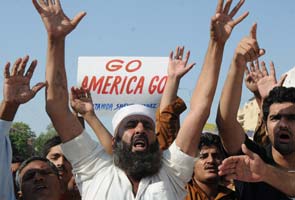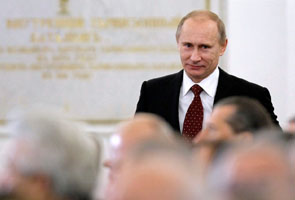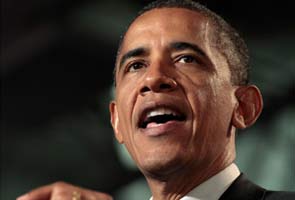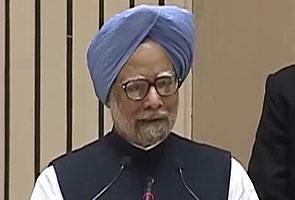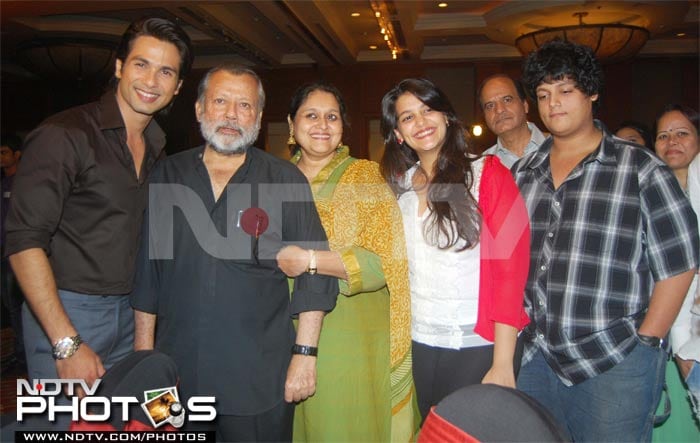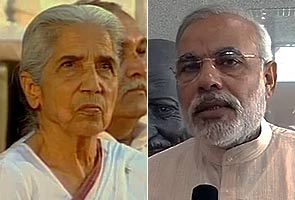Washington: President Obama on Monday will call for a new minimum tax rate for individuals making more than $1 million a year to ensure that they pay at least the same percentage of their earnings as middle-income taxpayers, according to administration officials.
With a special joint Congressional committee starting work to reach a bipartisan budget deal by late November, the proposal adds a new and populist feature to Mr. Obama's effort to raise the political pressure on Republicans to agree to higher revenues from the wealthy in return for Democrats' support of future cuts from Medicare and Medicaid.
Mr. Obama, in a bit of political salesmanship, will call his proposal the "Buffett Rule," in a reference to Warren E. Buffett, the billionaire investor who has complained repeatedly that the richest Americans generally pay a smaller share of their income in federal taxes than do middle-income workers, because investment gains are taxed at a lower rate than wages.
Mr. Obama will not specify a rate or other details, and it is unclear how much revenue his plan would raise. But his idea of a millionaires' minimum tax will be prominent in the broad plan for long-term deficit reduction that he will outline at the White House on Monday.
Mr. Obama's proposal is certain to draw opposition from Republicans, who have staunchly opposed raising taxes on the affluent because, they say, it would discourage investment. It could also invite scrutiny from some economists who have disputed Mr. Buffett's assertion that the megarich pay a lower tax rate over all. Mr. Buffett's critics say many of the rich actually make more from wages than from investments.
In a speech on Thursday, Speaker John A. Boehner, Republican of Ohio, agreed with Mr. Obama that the deficit-reduction committee "can tackle tax reform, and it should," to get rid of many tax breaks and allow for lower marginal rates.
"Tax increases, however, are not a viable option for the joint committee," Mr. Boehner said. Instead, he emphasized that meeting the deficit-reduction target should come largely from overhauling benefit programs like Medicare, Medicaid and Social Security.
The Obama proposal has little chance of becoming law unless Republican lawmakers bend. But by focusing on the wealthiest Americans, the president is sharpening the contrast between Republicans and Democrats with a theme he can carry into his bid for re-election in 2012.
It could also reassure Democrats who have feared that Mr. Obama would agree to changes in programs like Medicare without forcing Republicans to compromise on taxes.
The administration wants such a tax to replace the alternative minimum tax, which was created decades ago to make sure the richest taxpayers with plentiful deductions and credits did not avoid income taxes, but which now hits millions of Americans who are considered upper middle class. Mr. Obama has said that many average Americans could see a tax cut if the system is overhauled, since ending many tax breaks would allow for lower rates while raising more revenues from the wealthiest.
The millionaires' tax is among several changes Mr. Obama will propose in urging Congress to overhaul the federal income tax code next year, both to raise revenues for reducing deficits and to make the tax system simpler and fairer, said the administration officials, who agreed to speak in advance of the president's announcement on the condition of anonymity.
The millionaires' rate would affect only 0.3 percent of taxpayers, they said. That would be fewer than 450,000; 144 million returns were filed for 2010.
Mr. Obama's proposal comes a month after Mr. Buffett began reviving his longstanding objection that he and "my megarich friends" pay a significantly lower percentage of their income in federal taxes - income and payroll taxes - than everyone else, thanks to the tax code's favoritism toward the rich, and especially toward investors like him.
"My friends and I have been coddled long enough by a billionaire-friendly Congress," he wrote in an opinion article in The New York Times, a complaint he has repeated in talks and media interviews since. "It's time for our government to get serious about shared sacrifice."
Mr. Obama has been citing Mr. Buffett as he promotes his $447 billion job-creation plan. He proposes to offset the cost of that plan and reduce future budget deficits through higher taxes on the wealthy and on corporations after 2013, when the economy will presumably be healthier.
Mr. Obama's proposed Buffett Rule puts a new spin on that pitch, as he tries to put Republicans in Congress and in the presidential race on the defensive for their rigid stand against higher taxes. Behind the arguments of Mr. Obama, Mr. Buffett and others about the inequity of the tax system is the difference between taxpayers' marginal tax rate, popularly known as their tax bracket, and the effective tax rate they end up paying after subtracting for deductions, credits and other breaks.
The marginal tax rate is the percentage paid on the last dollar a person earns. The current system has six marginal tax rate percentages - 10, 15, 25, 28, 33 and 35 - and each applies to a progressively higher amount of income. In theory, a wealthy filer pays the lower rates on income within each bracket, but the bulk of their income is taxed at the top 35 percent rate. Middle-class taxpayers generally pay marginal rates of 15 percent or 25 percent.
But investors like Mr. Buffett pay no more than 15 percent on most of their income because that rate applies to capital gains, dividends and "carried interest," which is the compensation paid to hedge fund partners and investment managers like Mr. Buffett.
Another reason many wealthy Americans pay a smaller share of their income in federal taxes is that the Social Security payroll tax does not apply to income above $106,800; most people do not reach the cutoff and pay the tax on all their income.
Counting income and payroll taxes, Mr. Buffett has said he paid an effective tax rate of 17.4 percent for 2010 compared with an average 36 percent rate for many employees of his company, Berkshire Hathaway.
Under Mr. Obama's proposal, Mr. Buffett and others with taxable income of more than $1 million would pay a minimum tax rate closer to his employees' rates. But Mr. Obama will leave the details of how such a rate would be calculated - whether to focus on the overall federal tax burden of middle-income individuals generally, or their marginal rates - to the debate over rewriting the tax code.
Republicans and some conservative economists are certain to oppose him, however.
In 2007, when Mr. Buffett made news with his complaints about tax inequities, N. Gregory Mankiw, an economics professor at Harvard who was an adviser to President George W. Bush, disputed Mr. Buffett.
Mr. Mankiw, who now advises Mitt Romney, the Republican presidential candidate, said that unlike Mr. Buffett and others who live on investment income taxed at 15 percent, millionaires typically pay the 35 percent marginal rate on their salaries, bonuses and business income. Even Mr. Buffett probably paid a higher effective rate than he claimed, Mr. Mankiw added, because much of his income came from corporate income that had been taxed before it was paid out to individuals.
Mr. Obama, in his plan, will call for more than $300 billion in 10-year savings from Medicare and Medicaid but not for changes in Social Security.
Representative Chris Van Hollen of Maryland, one of six Democrats on the 12-member joint committee, said Mr. Obama must make it clear that those reductions from entitlement programs "are tied to his proposals to raise revenues by cutting special-interest tax breaks and asking the folks at the top to pay more."
"Otherwise," Mr. Van Hollen added, "there's a risk the Republicans will cherry-pick the pieces they like and leave behind the ones they don't."
